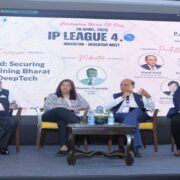India is going through a digital renaissance, and at the center of this revolution is the explosive expansion of online gaming. The last five years have witnessed a dramatic change in the way Indians play games — from a niche activity to a mainstream entertainment and monetization channel. A lot of this speed can be traced to a vibrant ecosystem of technology startups that are not only creating games but also infrastructure, crafting immersive experiences, and scaling monetization models. Among them, real-money games such as the rummy cash game have gained mass appeal by providing skill-based gaming experiences with real financial incentives.
From hyper-casual titles to advanced multiplayer platforms, Indian startups are revolutionizing the gaming world. Their work is far beyond building games — they are pioneering cloud integration, enhancing real-time multiplayer capabilities, and leveraging artificial intelligence to personalize user experiences. That’s why India’s online gaming market is now estimated to become a $3.5 billion market by 2025, growing at a brisk rate of over 30% per year.
The Emergence of Gaming Startups
India’s startup ecosystem, recognized worldwide for its fintech and edtech innovations, has, in recent times, shifted its focus to the burgeoning online gaming space. Entities such as MPL (Mobile Premier League), Dream11, Zupee, and WinZO have taken the lead, acquiring millions of users and huge investments. Such startups are not simply providing entertainment—they are creating scalable products with space for real-time game handling, fairness with AI-driven checks, and integrated payment gateways.
What is more impressive about this growth is the intersection of gaming with other technology spaces. For instance, cloud computing has made it possible for light apps to provide console-quality experiences, even on mid-range phones. Startups are leveraging cloud-based game streaming and edge computing to minimize latency, which is critical for real-time multiplayer games.
Enabling Infrastructure: The Quiet Catalyst
Behind the scenes, tech enablers are working hard to make India a gaming superpower. Yotta and Nxtra are constructing strong data centers that enable the huge processing demands of high-performance games today. Likewise, storage technology providers such as WD_BLACK have started targeting the Indian gaming market with super-fast SSDs and hardware optimized for smoother gameplay.
This infrastructure shift enables startups to become global. No longer confined to Indian audiences, a lot of game developers now make games for users worldwide by supporting multiple languages and culturally responsive gameplay mechanics. This kind of expansion was unimaginable even a decade ago, but has become the norm due to these underlying tech advances.
Monetization: Ads to In-Game Economies
The true brilliance of Indian gaming startups is the innovative monetization approach. In the past, advertising was the favored source of income. But today’s platforms employ diversified monetization options like in-app purchases, subscription models, and real-money gaming. Skill games like fantasy sports, quizzes, and card games are enjoying legal certainty over games of skill vs. chance.
Startups are also experimenting with “freemium” models. For example, users can play the base game for free but pay for upgrades, skins, or high-end challenges. This model is well-suited for achieving high user retention and encouraging microtransactions. Further, digital wallets and UPI integration ensure these payments are effortless for even non-techno-savvy users.
Interactive Entertainment: Beyond Gaming
The majority of Indian technology startups are redefining the definition of a gaming platform. They are evolving into complete interactive entertainment platforms. MPL, for instance, now has space for not only games but also live streaming features, competitive matches, and social interaction modules. This digital content gamification is enabling cross-sector innovation in edtech, fitness, and even mental health.
The outcome is a dynamic consumer experience where consumers are no longer mere spectators but active contributors. They talk, they compete, share wins, and even produce content. These engagement-driven features increase time spent on platforms and unlock new monetization streams like tipping, creator rewards, and brand sponsorships.
Government and Policy: Keeping Up with Innovation
In spite of the great leaps in innovation, India’s regulatory environment is still a work in progress. Startups have had to sail in uncertain waters on taxation, legal status of real-money games, and state policy differences. But the times are changing. State governments are starting to see the promise of the gaming economy and are being receptive to regulating but not banning.
The Ministry of Electronics and Information Technology (MeitY) recently suggested guidelines to distinguish between games of skill and chance. It is a good step that can provide clarity and enhance investor sentiment. The government is also aggressively pushing local game development under the “Design in India, Design for the World“ initiative, encouraging homegrown startups to dream big.
Innovations That Make Indian Startups Stand Out
Some of the technological and operational innovations that mark Indian gaming startups on the global landscape are:
- Local Flavor, Global Standards: Indian developers have the ability to marry local themes, mythology, and culture with world-class graphics and gameplay.
- AI-Powered Personalization: Startups are leveraging AI to personalize gaming experiences based on user behavior, preferences, and skill level.
- Gamification of Non-Gaming Applications: Startups are introducing game mechanics to health apps, learning applications, and exercise regimens in order to enhance user interaction.
- Cross-Platform Compatibility: From Android to iOS and now even on smart TVs, Indian games are being optimized for cross-device use.
What the Future Holds
In the future, the convergence of gaming and cutting-edge technology will only intensify. There is more to come with augmented reality (AR), virtual reality (VR), and blockchain-supported gaming economies. Indian entrepreneurs are already testing Web3 games, NFTs, and metaverse platforms that have the potential to rewrite digital ownership and interaction.
As the game industry matures, there will be a critical need for cooperation among the technology, media, and finance industries. More public-private partnerships, international acquisitions, and possibly even Indian gaming unicorns listing their stocks will be expected to happen.
Conclusion
Indian technology startups are not only surfing the wave of the online gaming revolution but creating the surfboards as well. By leveraging cutting-edge technology, inclusive content, and nimble monetization, they have democratized gaming and turned it into a career option, a social engagement tool, and a profitable business model.
By prioritizing scalability, user experience, and indigenous innovation, these startups are redefining India from a consumer market for games to a gaming superpower of the world.







